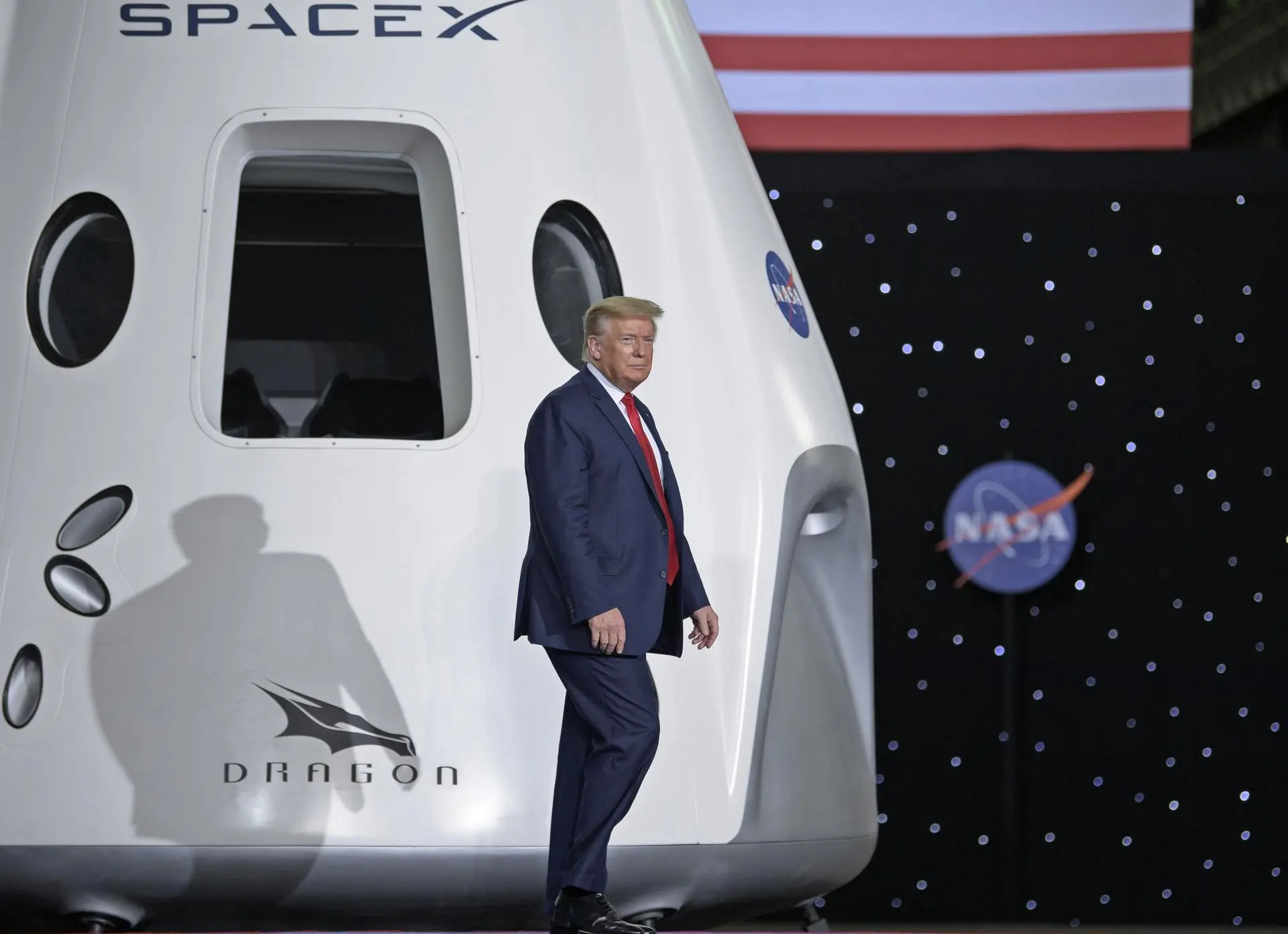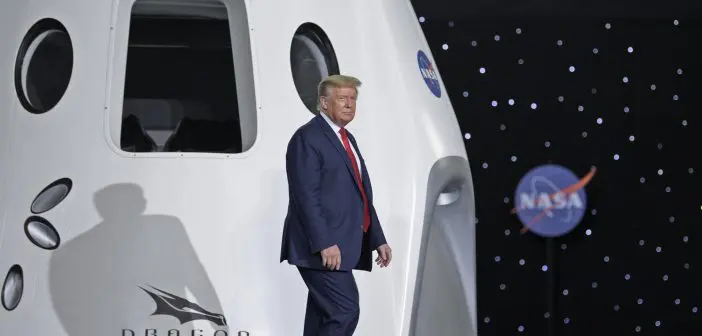
US space policy will likely get a jolt if voters re-elect Donald Trump next month. The former president won respect for his interest and work in space. In contrast, the current outgoing president is widely viewed as asleep at the wheel regarding space.
During his first term, Trump initiated several substantive space policy reforms, including starting the Artemis program, reinstating the National Space Council, and creating the United States Space Force. In a speech in August, Trump said establishing the Space Force was “one of my proudest achievements in my first term.”
Trump’s second-term space policy platform
Trump’s second-term policy platform, released in July, says “the United States will create a robust manufacturing industry in near Earth orbit, send American astronauts back to the Moon, and onward to Mars, and enhance partnerships with the rapidly expanding commercial space sector to revolutionise our ability to access, live in, and develop assets in space.”
If re-elected, Trump has said he intends to set up a 4,000-person-strong stand-alone Space National Guard, which would act as the primary US Space Force combat reserve.
US space commentators expect a second Trump administration to halt the drift in the Artemis program and prioritise the crewed Artemis III mission to the Moon. They say Trump does not want to risk China getting its astronauts there first.
Other space reforms likely to attract Trump’s attention during any second term include raising the profile and role of the Office of Space Commerce; improving the Space Force’s offensive capabilities; reducing over-classification to better partner with commercial actors; and improving space intelligence sharing with allies, including Five Eyes partners like Australia.
Trump is also personally close to SpaceX founder and CEO Elon Musk and is reportedly considering him for an advisory role if re-elected. Strengthened professional and personal ties between the two men could have significant implications for US space policy, particularly the future role of already dominant private sector firms such as SpaceX.
Kamala Harris unfairly characterised as uninterested in space?
In contrast, the Biden administration has appeared less engaged with space. While the current president has left Trump’s space reforms intact, his tenure has been characterised by a lack of space initiatives. Presidential candidate and current Vice President Kamala Harris is the administration’s space agenda lead.
Many commentators and industry insiders criticise Harris as remarkably disengaged with space. Others say otherwise. NASA administrator Bill Nelson calls the VP a “space aficionado.”
As Joe Biden’s space lead, Harris chairs the US National Space Council, a body responsible for ensuring the US capitalises on space opportunities. There are reports these meetings are infrequent and productive. Others say this is not the case, and Harris is an active and detail-oriented supporter of getting US astronauts back onto the Moon.
“She has been a vocal supporter of the Artemis campaign to return astronauts to the moon and on to Mars, and has been a key advocate for the importance of space cooperation with our international partners and growing the number of Artemis Accord signatories,” Nelson said.
Uder current Artemis timelines, a crewed US lunar landing may happen towards the tail end of the next administration.





